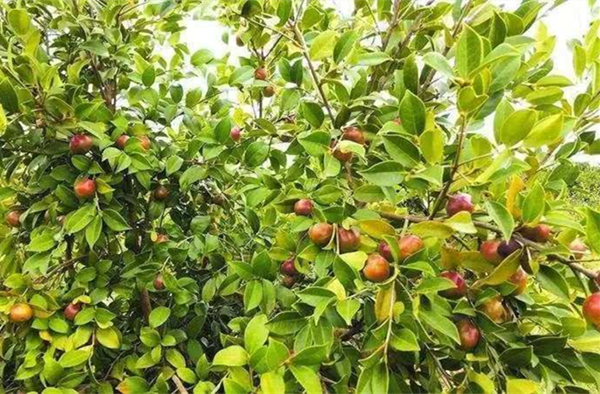Thriving oil tea industry drives rural vitalization in Xianju
chinadaily.com.cn | Updated: 2024-02-27
Print Print
Oil tea fruit hangs from a tree in Xianju county, Taizhou, located in East China's Zhejiang province. [Photo/taizhou.com.cn]
The oil tea industry in Taizhou's Xianju county has experienced remarkable growth in recent years, establishing itself as a pivotal driver of local rural vitalization.
With a rich heritage of cultivation spanning over a millennium, Xianju achieved a record harvest of over 16 million kilograms of oil tea fruits in 2023, generating an output value of more than 80 million yuan ($11.11 million), official statistics show.
This success can be largely attributed to a range of policies implemented by authorities to incentivize farmers to reclaim wasteland and cultivate oil tea.
One of the pioneering villages, Yang'ao village in Tianshi town, converted 380 mu ( 25.33 hectares) of barren mountains into oil tea gardens out of its total of more than 600 mu in 2023. Building on this initial success, Zheng Junli, Party chief of the village, announced plans to transform the remaining wasteland into tea gardens this year.
Similarly, Hengxi town has made significant progress in oil tea cultivation. Wang Xiangshui, Party chief of Zhangzhuang village in Hengxi town, explained, "In the past, we densely planted over 100 oil tea plants per mu on average. Now, with our recent reclamation of mountainous terrain, we are averaging 60 plants per mu, allowing for improved sunlight exposure and laying the groundwork for future mechanized harvesting."
The burgeoning industry has attracted numerous local business owners to invest in their hometown. Yang Lili is one such entrepreneur. Her "Kuocangshan" oil tea brand has rapidly emerged as one of the most promising branded agricultural products in Taizhou, leveraging its superior product quality.
Bullish on the future development of the oil tea industry, Yang revealed plans to introduce new equipment to enhance production capacity this year.
"Despite the expansion in production, we will maintain traditional methods of producing oil tea," Yang emphasized.

